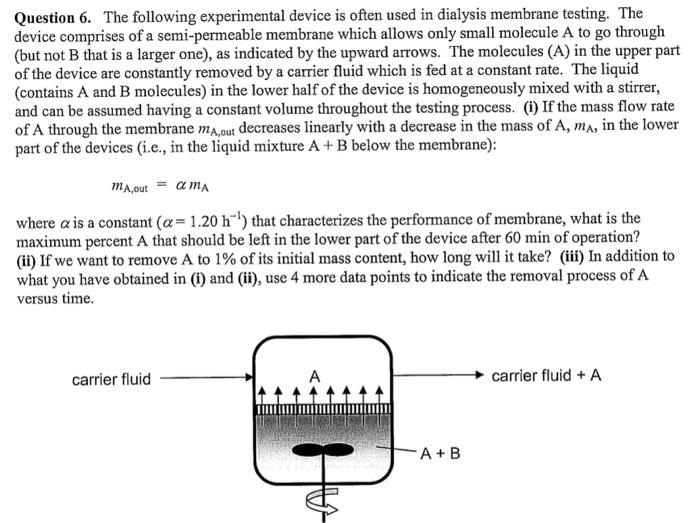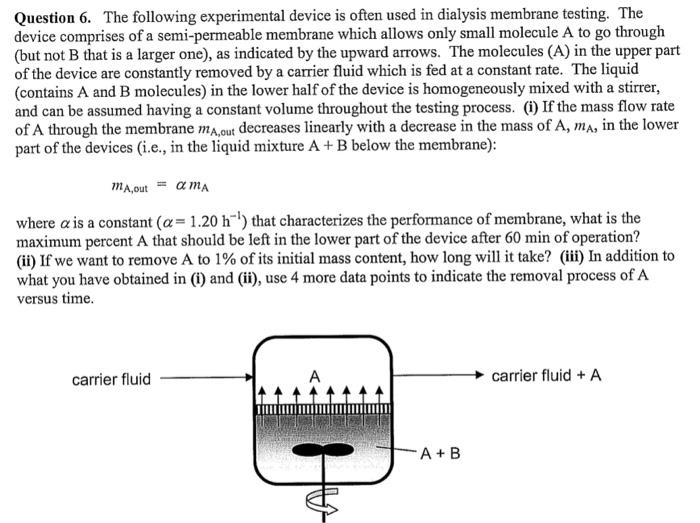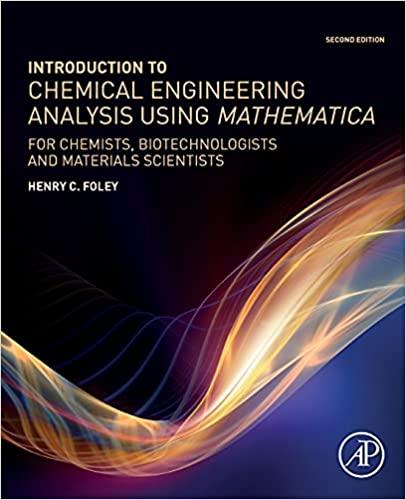Answered step by step
Verified Expert Solution
Question
1 Approved Answer
Question 6. The following experimental device is often used in dialysis membrane testing. The device comprises of a semi-permeable membrane which allows only small molecule
Question 6. The following experimental device is often used in dialysis membrane testing. The device comprises of a semi-permeable membrane which allows only small molecule A to go through (but not B that is a larger one), as indicated by the upward arrows. The molecules (A) in the upper part of the device are constantly removed by a carrier fluid which is fed at a constant rate. The liquid (contains A and B molecules) in the lower half of the device is homogeneously mixed with a stirrer, and can be assumed having a constant volume throughout the testing process. (i) If the mass flow rate of A through the membrane ma,out decreases linearly with a decrease in the mass of A, ma, in the lower part of the devices (i.e., in the liquid mixture A + B below the membrane): mA,out a mA - where a is a constant (a= 1.20 h-) that characterizes the performance of membrane, what is the maximum percent A that should be left in the lower part of the device after 60 min of operation? (ii) If we want to remove A to 1% of its initial mass content, how long will it take? (iii) In addition to what you have obtained in (i) and (ii), use 4 more data points to indicate the removal process of A versus time. carrier fluid A A + B carrier fluid + A


Step by Step Solution
There are 3 Steps involved in it
Step: 1

Get Instant Access to Expert-Tailored Solutions
See step-by-step solutions with expert insights and AI powered tools for academic success
Step: 2

Step: 3

Ace Your Homework with AI
Get the answers you need in no time with our AI-driven, step-by-step assistance
Get Started


